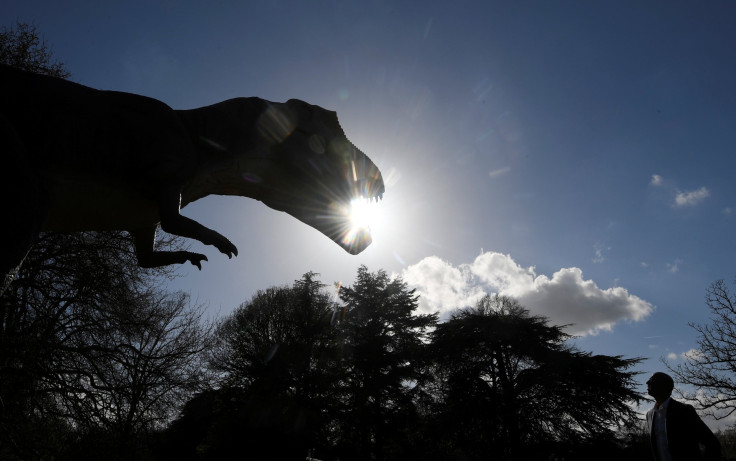Dinosaurs Were Doomed Long Before Catastrophic Asteroid Impact, Thanks To Flowers: Study

It is believed the domination of dinosaurs ended some 65 million years ago when a massive asteroid struck off the coast of Mexico and spurred a series of catastrophic events that wiped out 75% of life on Earth. A majority of the scientific community backs this theory, but if a new study is anything to go by, the animals were already on the path to extinction.
This is because, long before the extinction event, the first flowering plants started evolving. Some of these new species were healthy foods for animals but others proved toxic, something dinosaurs could not bear during their time on Earth.
Normally, animals follow a mechanism called "learned taster aversion" where they associate the taste and smell of certain foods or plants with danger or with the condition of falling sick. For instance, rats sample only a small amount of new food and if they get sick from it, they avoid it moving ahead.
However, dinosaurs failed to develop this mechanism and ended going back to the same poisonous plants despite gastrointestinal distress. This, as the research asserts, led to a fall in their numbers.
The theory comes from Gordon Gallup, a professor hailing from the University at Albany, New York, and his student Michael J. Frederick. They both studied fossil records of the first angiosperms or flowering plants, including those with toxic defenses, and found the plants came much before the asteroid impact and right before dinosaur populations started declining.
Though the exact timeline of when toxic plants started spreading is still a matter of debate, the duo say the appearance of the plants certainly coincides with the gradual disappearance of dinosaurs.
“The asteroid certainly played a factor, [but] the psychological deficit which rendered dinosaurs incapable of learning to refrain from eating certain plants had already placed [a] severe strain on the species,” Gallup said in a statement. “The prevailing view of dinosaur extinction based on the asteroid impact implies that the disappearance of dinosaurs should have been sudden and the effects should have been widespread, but the evidence clearly shows just the opposite”.
Their assertion was further backed when birds and crocodilians, two modern-day animals believed to have descended from dinosaurs, were examined. The group wanted to see if the two had developed learned taste aversion, and found birds were able to identify toxic food with their visual features but crocodilians could not. They were fed meat samples, some with high levels of toxicity, but kept feeding on them, possibly just like dinosaurs.
The research was detailed in a paper titled “The demise of dinosaurs and learned taste aversions: The biotic revenge hypothesis” and published in journal Ideas in Ecology and Evolution.
© Copyright IBTimes 2025. All rights reserved.




















